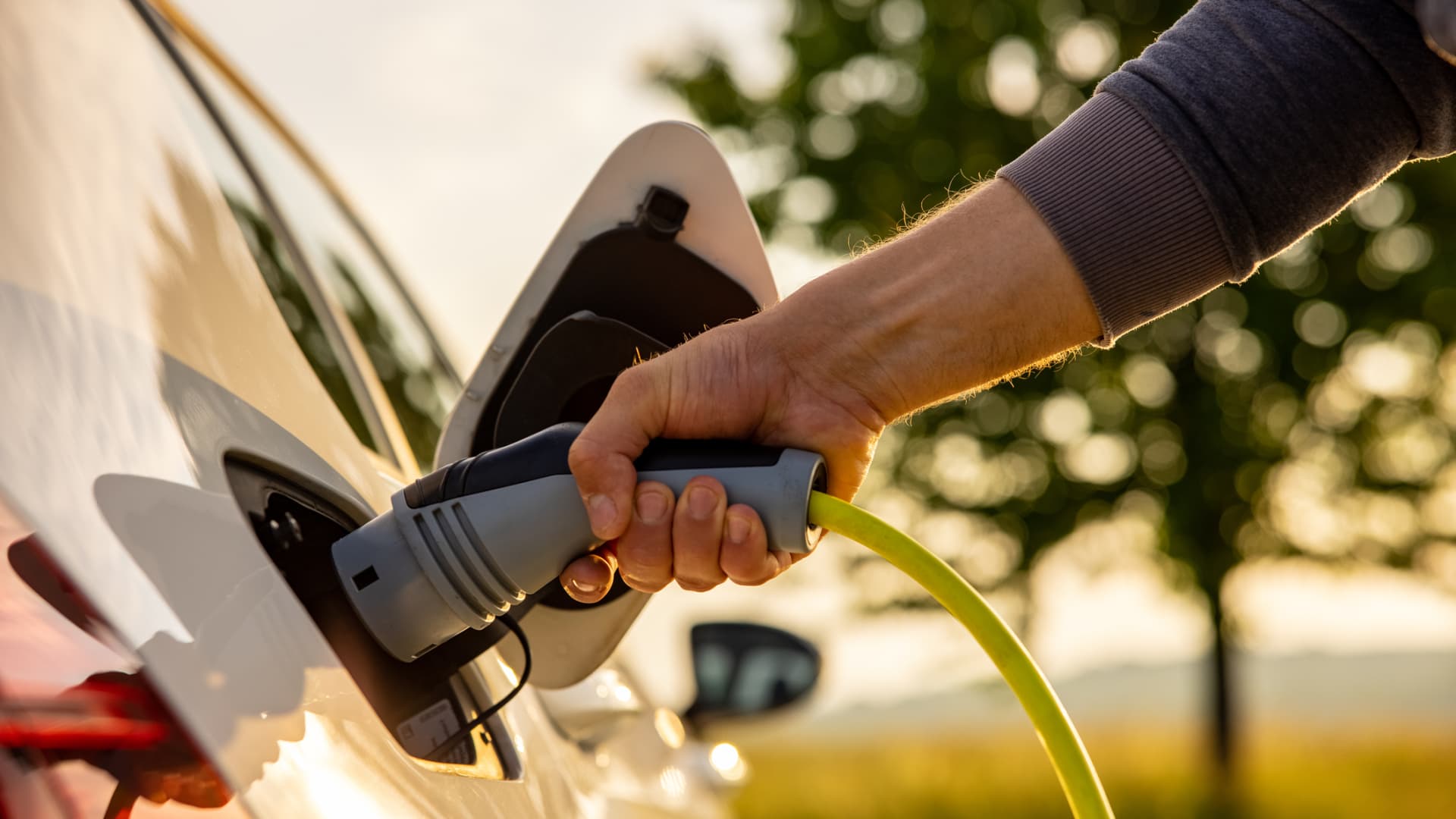Federal Incentives & Rebates May End Soon. Now Is The Time To Act!

Sign up for daily news updates from CleanTechnica on email. Or follow us on Google News!
My wife and I have a piece of wall art in our home that says, “Live Your Life Now Not Tomorrow.” We found it in a shop while on vacation several years ago and bought it because it captures how we want to live our lives quite nicely. It had a prominent place in our home in Rhode Island, where we ran a bed & breakfast for a number of years and got many favorable comments from guests. If you are considering adding solar panels to your home, a residential storage battery, one or more heat pumps to heat and cool your home, a heat pump based water heater or clothes dryer, or an induction stove, you might what to heed that advice and act now because the federal incentives and rebates available today may not be available after the new administration arrives in Washington, DC.

In a research note this past week, Bloomberg advised that if you are thinking of buying an electric car or an energy-saving heat pump eligible for federal tax credits and rebates, now might be the time. The incoming occupant of the Offal Office calls the Inflation Reduction Act the “green new scam.” He’s pledged to rescind funding for the Biden administration’s signature 2022 climate law, which includes more than $8.5 billion in incentives for individuals and families to decarbonize their lives.
“Clawing back funds already dispersed would be difficult, but that doesn’t mean the Trump administration won’t try,” said Romany Webb, deputy director of the Sabin Center for Climate Change Law at Columbia University. “From a strictly legal perspective, there may be more avenues for the administration to withhold funds that haven’t been awarded yet,” but “failing to move forward with announced awards may be politically unpopular,” she said.
Incentives & Rebates May Disappear
The IRA’s benefits are many and varied. It offers up to $14,000 for low- and moderate-income households to install heat pumps, induction stoves, and other high-efficiency electric appliances. Can ‘t have that, of course. It discriminates against wealthier families. It wouldn’t be right to treat those people with money differently than those who contribute nothing to society and just suck off the upper classes. Wealthier families can receive a $2,000 federal tax credit for replacing an oil- or methane-fired furnace or water heater with a heat pump. Some electric vehicles qualify for a $7,500 tax credit issued at the time of purchase, and a 30% tax credit is available for homeowners to install solar panels and battery storage systems. There is also a used EV tax credit of $4,000 that also sticks in the craw of right thinking people.
Representative Ro Khanna, a California Democrat, said on Thursday’s Zero podcast that he doubts the new administration and Congressional Republicans will seek a wholesale repeal of the IRA, given the billions of dollars in benefits it funnels to their constituents. In fact, Bloomberg adds that Representative Buddy Carter, a Republican whose district is home to the new Hyundai factory in Georgia, didn’t vote for the IRA — no Republicans in Congress did — but he said he doesn’t want to see projects like the new factory jeopardized. Which makes sense. It is expected to create up to 8,500 jobs in his district. “I’m going to discourage [the new administration] from making a sudden change,” Carter said.
The vast majority of IRA investment has gone to red and swing states — especially in the South and Midwest — where land, labor, and energy are cheaper. Some GOP leaders and lawmakers in these states say they’ll work to defend projects enabled by the law if the political winds shift. Georgia Governor Brian Kemp said he will advocate for companies that have brought jobs to the state regardless of who is sitting in the White House next year. Of course, Kemp refused to support the new incumbent after the last election in 2020, so whether he will have any influence in the next administration is questionable. Tennessee Representative Chuck Fleischmann, a Republican whose district has a battery facility that employs 300, said he would be happy to explain the benefits of battery technologies to officials in a second Trump administration. “I can lay out a very good, positive message,” he said.
Since the IRA passed in August 2022, 325 new clean energy projects have been announced across 41 states and Puerto Rico, according to nonpartisan environmental research group E2, which tracks them. Michigan has the most projects in the country — 30 — which are expected to create a total of more than 12,000 jobs. In Georgia, 28 projects and $15 billion of investments will create almost 16,000 jobs. And North Carolina has seen a staggering $19 billion flowing into 22 projects. And yet, all three of those states voted for the guy in the silly red hat. Go figure. Talk about voting against your own self interest!
The 30% tax credit for residential solar installations dates to 2006 and was set to expire in 2023 before the IRA extended it until 2032. Homeowners claimed $6 billion in tax credits for solar installations and battery storage last year. It may now be on the chopping block as well.
Red States Pooh Pooh IRA Benefits
GOP politicians in these states welcome the economic boost and attribute it to their own fostering of business, low taxes, and light regulation more than anything Biden did. Kemp said Georgia’s green energy boom has been decades in the making, based on relationships fostered by him and two prior governors. “Those job creators could go anywhere and still be impacted by the IRA, but again and again, they’re choosing Georgia,” Kemp said. “That hasn’t happened by accident.” Similarly, a spokesperson for South Carolina Governor Henry McMaster, a Republican, said EV makers and other car companies “have been flocking to South Carolina for years and they will continue to long after President Biden leaves office.”
But IRA incentives were critical to many of these projects going ahead, and Democrats have been broadcasting that message. IRA funding is distributed to the states through US Department of Energy approved rebate programs. The federal government has paid out $1.4 billion to nine states and the District of Columbia that have begun to offer up to $8,000 for a heat pump and $1,750 for a heat pump water heater. They also provide $840 cash back for induction stoves and heat pump clothes dryers and $4,000 for electrical system upgrades. Another 10 states have received $1.2 billion but have yet to start issuing rebates. Nine more states are awaiting federal review of their applications, which usually takes about 60 to 90 days. The rest of the states are still preparing their applications, except for South Dakota, which isn’t participating in the program. Florida initially declined $175 million in funding but now has submitted an application.
Short of repealing the IRA, though, taking those lucrative incentives away from taxpayers would prove legally difficult and politically problematic, according to David Friedman, senior policy director for Rewiring America, a nonprofit that advocates for community electrification. “The law is pretty clear that once this money is authorized, this money is required to be spent,” said Friedman, a former acting assistant secretary for energy efficiency and renewable energy at the Energy Department. “Politically, it would just be a terrible move to roll these things back as every state and territory but one have applied for these rebates.”
EV Tax Credit Most Vulnerable
The $7,500 EV tax credit is more vulnerable as it may be subject to a law that allows Congress to review and reverse recently enacted regulations, according to a September paper by Webb and her colleagues. “If we end up with a Republican-controlled Congress, there may be attempts to repeal or revise the IRA tax credits themselves,” Webb said. That too could prove politically perilous.
Friedman said now is always a good time for families to take advantage of the IRA and go electric. “Regardless of what’s going to happen in the future, you should do it today because it’s a great deal.” That seems like excellent advice.
Have a tip for CleanTechnica? Want to advertise? Want to suggest a guest for our CleanTech Talk podcast? Contact us here.
Sign up for our daily newsletter for 15 new cleantech stories a day. Or sign up for our weekly one if daily is too frequent.
CleanTechnica uses affiliate links. See our policy here.
CleanTechnica’s Comment Policy
This post has been syndicated from a third-party source. View the original article here.




